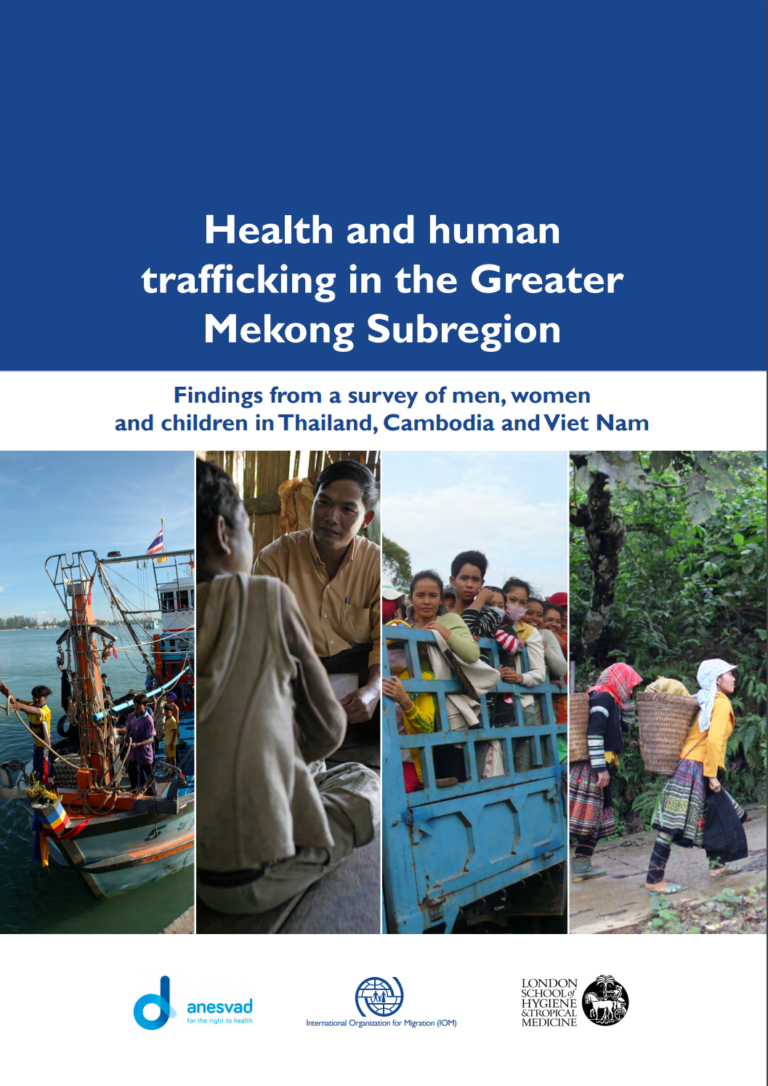This study drew on a conceptual framework on trafficking and health that highlights the potential health influences of each of the phases of the migration process and their importance to the cumulative health status of individuals who are trafficked. This research also recognized a “grey zone” constituting the ambiguity and complexities in the definitions of human trafficking, specifically the weak articulation of the level of “exploitation” necessary to define someone as being “trafficked.”
For this reason, to avoid subjective decision-making by the research team about who is “trafficked,” and for important ethical reasons, the study population was defined as ‘individuals using post-trafficking services’. In this way, the study population should be viewed as a “service-based” sample, and the findings are intended to inform service providers about client support needs.

